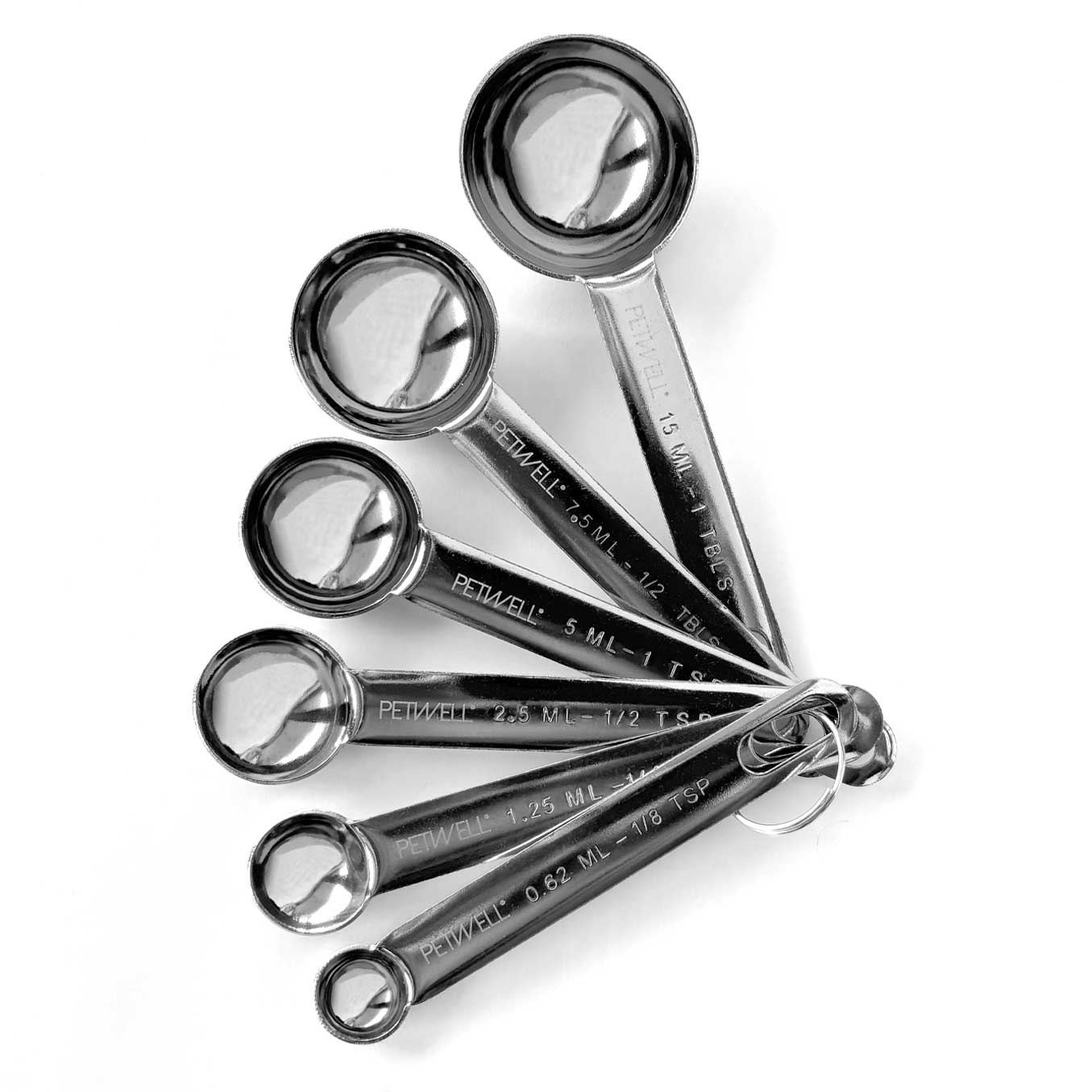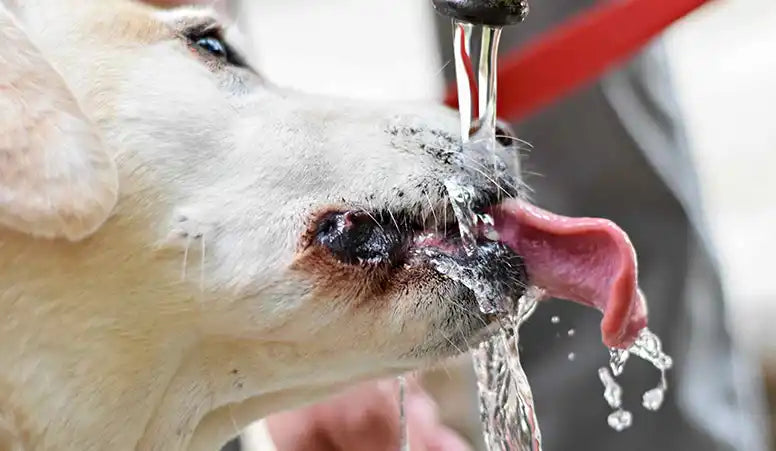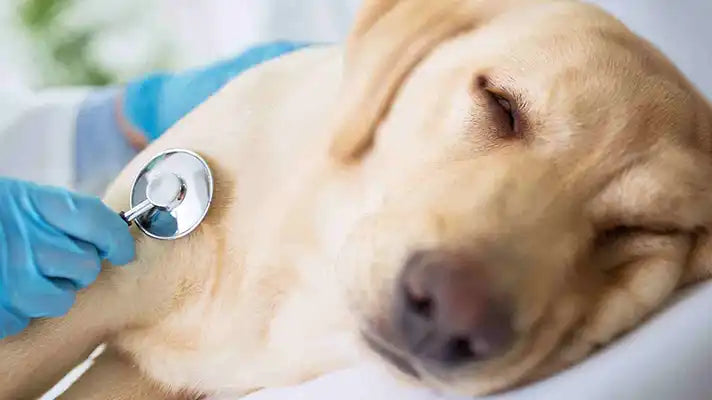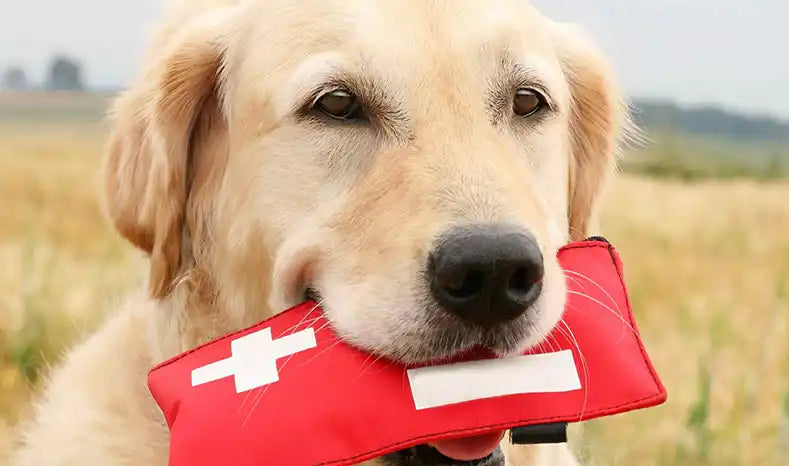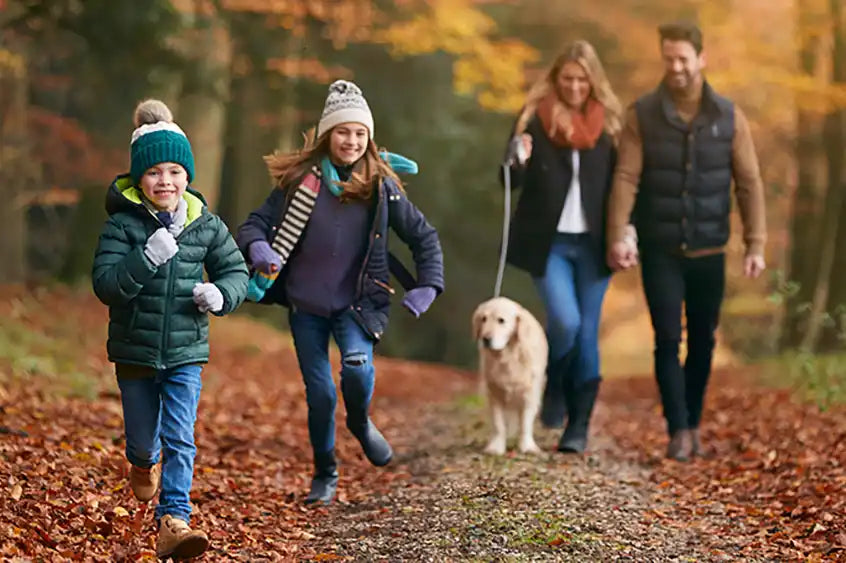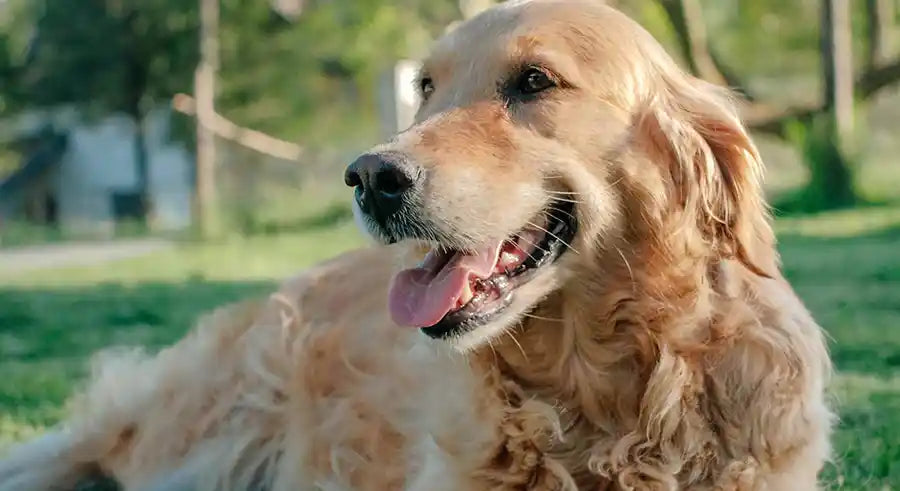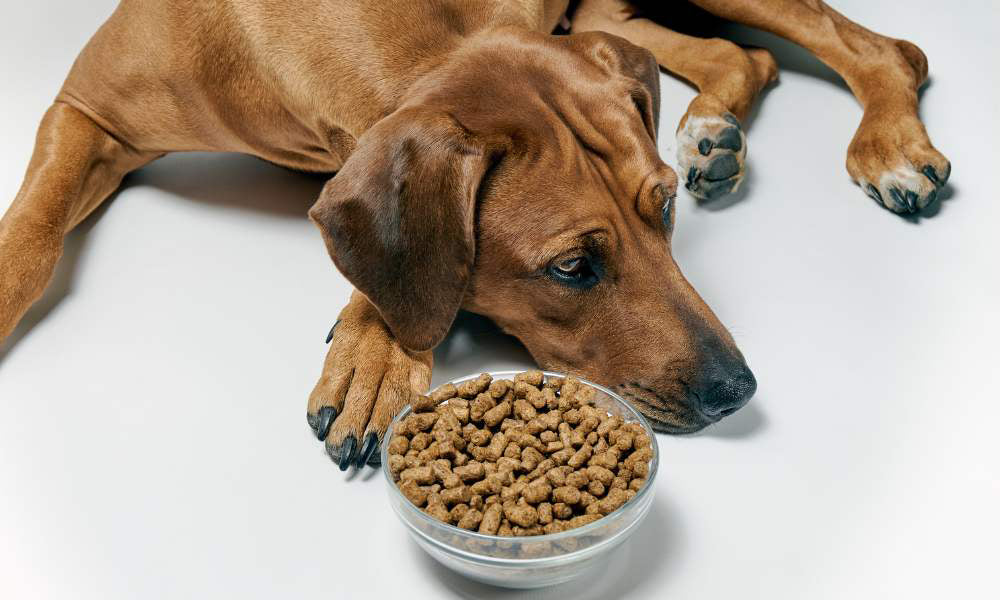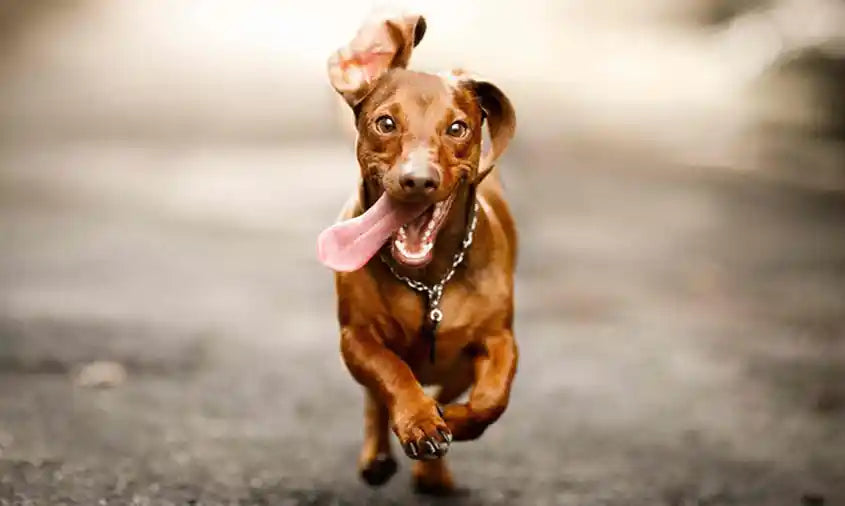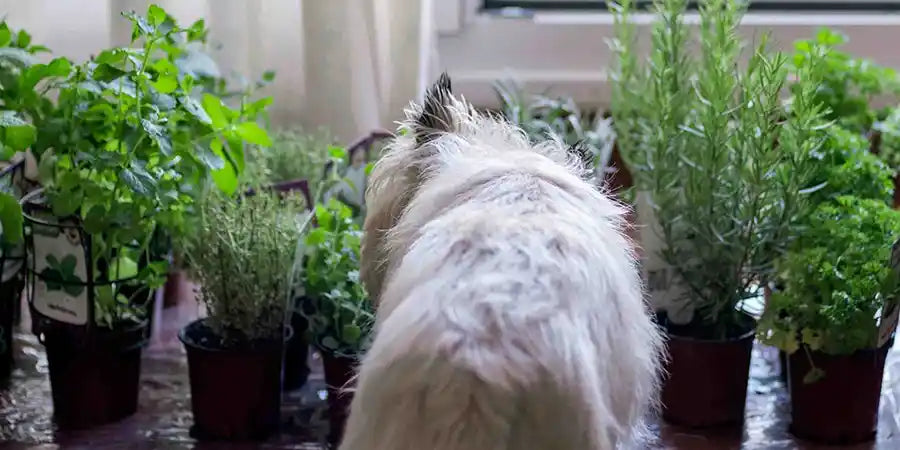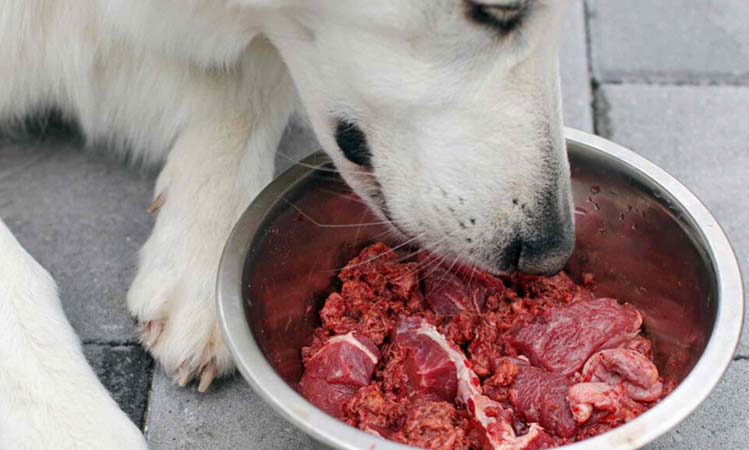Why do dogs sniff everything on walks? If you’ve ever wondered why a five-minute walk turns into a 30-minute sniff safari, you’re not alone. For dogs, sniffing isn’t a distraction, it’s how they experience the world.
While we rely on sight, dogs rely on scent. Every sniff tells a story: who’s been there, what’s changed, and whether everything feels safe. Once you understand this, your dog’s sniffing suddenly makes a lot more sense.
Quick Take
Dogs sniff everything because their sense of smell is their primary way of:
- understanding their environment
- communicating with other dogs
- calming themselves and reducing stress
- getting mental enrichment
Letting your dog sniff is one of the easiest ways to support their wellbeing.

Why Do Dogs Sniff Everything?
Dogs have an extraordinary sense of smell, far more powerful than ours. Depending on breed, dogs can have hundreds of millions of scent receptors, compared to roughly five million in humans.
That means when your dog stops to sniff a blade of grass, they’re not just smelling “grass.” They’re picking up layers of information we simply can’t detect.
Sniffing Is How Dogs Communicate
One of the main reasons dogs sniff everything is communication. Scents carry information about:
- other dogs
- animals that have passed through
- emotional states
- changes in the environment
Dogs don’t leave notes, they leave scent messages.
Why Do Dogs Sniff Other Dogs’ Butts?
It might make us uncomfortable, but butt-sniffing is completely normal dog behaviour.
Dogs have scent glands around their rear that release highly specific chemical signals. Sniffing another dog’s behind is essentially a canine handshake, a quick way to gather identity, mood, and social information.
It’s not rude. It’s polite. (In dog language, anyway.)
Sniffing is not just a simple action; it's a key part of how dogs experience and interact with the world around them.
Dogs Use Sniffing to Explore the World
Dogs don’t just walk through environments - they map them with scent.
Sniffing helps dogs:
- understand where they are
- recognise familiar places
- notice what’s new or different
- feel oriented and secure
This is why sniffing can be especially important for dogs in new environments or unfamiliar situations.
Sniffing Is Mental Stimulation (and It’s Exhausting)
Sniffing works a dog’s brain hard. In fact, a slow, sniff-heavy walk can be more tiring than a fast-paced one.
Mental stimulation through sniffing:
- challenges problem-solving skills
- reduces pent-up energy
- supports cognitive health, especially in senior dogs
If your dog seems calmer after a “sniffy” walk, that’s not coincidence, it’s biology.
Sniffing Helps Reduce Stress and Anxiety
Sniffing is naturally calming for many dogs. It gives them control over their environment and helps regulate emotions.
Dogs that are allowed to sniff often:
- feel more relaxed on walks
- cope better with new surroundings
- show fewer stress-related behaviours
If your dog struggles with anxiety, pairing enrichment activities with gentle support can make a noticeable difference. PetWell CALM Stress Support and CALM + TURKEY functional treats are designed to support calm behaviour as part of a balanced routine with daily use.
Read more about Dog Anxiety: Signs to Watch for and How to Calm Your Dog
Sniffing Supports Learning and Problem-Solving
Dogs use their noses to solve problems, finding treats, tracking toys, or following scent trails.
Sniff-based games:
- build confidence
- improve focus
- provide healthy mental challenges
This is why scent games are often recommended by trainers and behaviourists.
Can Dogs Smell Illness?
Dogs are incredibly sensitive to changes in scent. Trained dogs have been shown to detect certain medical conditions, and many pet parents notice their dogs becoming more attentive when something changes.
While this doesn’t mean your dog is diagnosing illness, it does highlight just how powerful their sense of smell really is.
Benefits of Sniffing for Dogs’ Health
Mental and Cognitive Health
Sniffing keeps the brain engaged and supports long-term cognitive function, particularly in older dogs.
Emotional Wellbeing
Sniffing allows dogs to self-soothe, release tension, and feel more settled in their surroundings.
Preventing Boredom Behaviours
A mentally fulfilled dog is less likely to develop boredom-related habits like chewing, digging, or excessive barking. Link this to a blog
How to Encourage Healthy Sniffing
Choose Scent-Rich Walking Routes
Parks, bushland, and tree-lined paths offer more sensory variety than busy footpaths.
Walk on a Loose Lead
When safe, allow your dog enough freedom to explore without feeling rushed or restricted.
Add Sniffing Games at Home
Hide treats, use snuffle mats, or scatter food in grass to encourage natural foraging.
Allow Enough Time
Rushing your dog through walks removes one of the most enriching parts of the experience.
What Not to Do
- Don’t yank your dog away from scents, it can create frustration and stress
- Avoid areas with chemicals, spoiled food, or toxic plants
- Never punish sniffing, it’s natural and necessary
- Be mindful of strong artificial scents that may overwhelm sensitive noses
Understanding why dogs sniff everything and providing for them to indulge their senses positively impacts their mental and physical health.
In Summary
So, why do dogs sniff everything?
Because sniffing is how dogs understand the world, regulate emotions, and stay mentally healthy. Allowing your dog time to sniff isn’t indulgent, it’s essential.
Next time your dog pauses mid-walk to investigate a scent like it’s the most important thing they’ve ever encountered, they’re not being stubborn, they’re being a dog.
Next read:
Dog Behaviour Problems & Natural Fixes,
Why Dogs Bark?
Why Dogs Dig and how to stop it
FAQ
Why do dogs sniff everything on walks?
Dogs sniff to gather information, communicate, and mentally engage with their environment.
Is it good to let dogs sniff on walks?
Yes. Sniffing supports mental stimulation, emotional balance, and overall wellbeing.
Why do dogs sniff other dogs so much?
Dogs use scent to identify and understand other dogs, including mood and familiarity.
Does sniffing help anxious dogs?
Often, yes. Sniffing can be calming and help reduce stress in stimulating environments.
The Science Behind it
Don’t just take our word for it, here are some evidence-based studies for you to review.
Canine olfactory detection and its relevance to medical detection
The science of sniffs: disease smelling dog
Canine Olfaction: Physiology, Behavior, and Possibilities for Practical Applications
Disclaimer: The entire contents of PetWell emails and website are not to be taken as medical advice. The team at Pet Squad Pty Ltd trading as PetWell encourages you to make your own pet health care decisions based on your research and in partnership with a qualified pet healthcare professional.
This article was prepared by the team at PetWell. Australia’s trusted provider of natural, human-grade pet supplements and freeze-dried treats for dogs and cats. Drawing on holistic animal behaviour insights and years of working with canine clients, PetWell champions kind, calm and scientifically informed solutions for every pet parent.
Posted By Ayda Hornak - Trained in Canine Psychology and Natural Animal Nutrition Care





